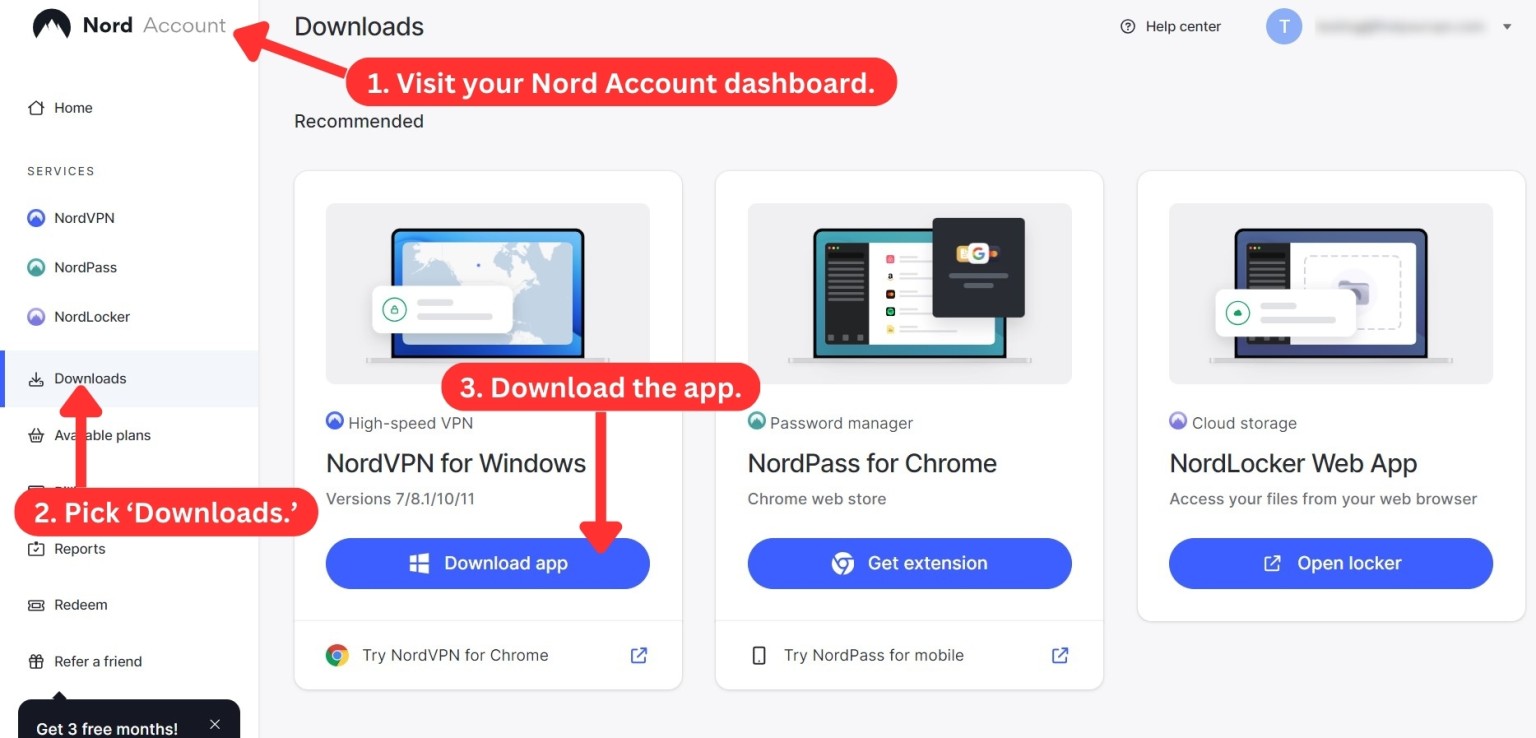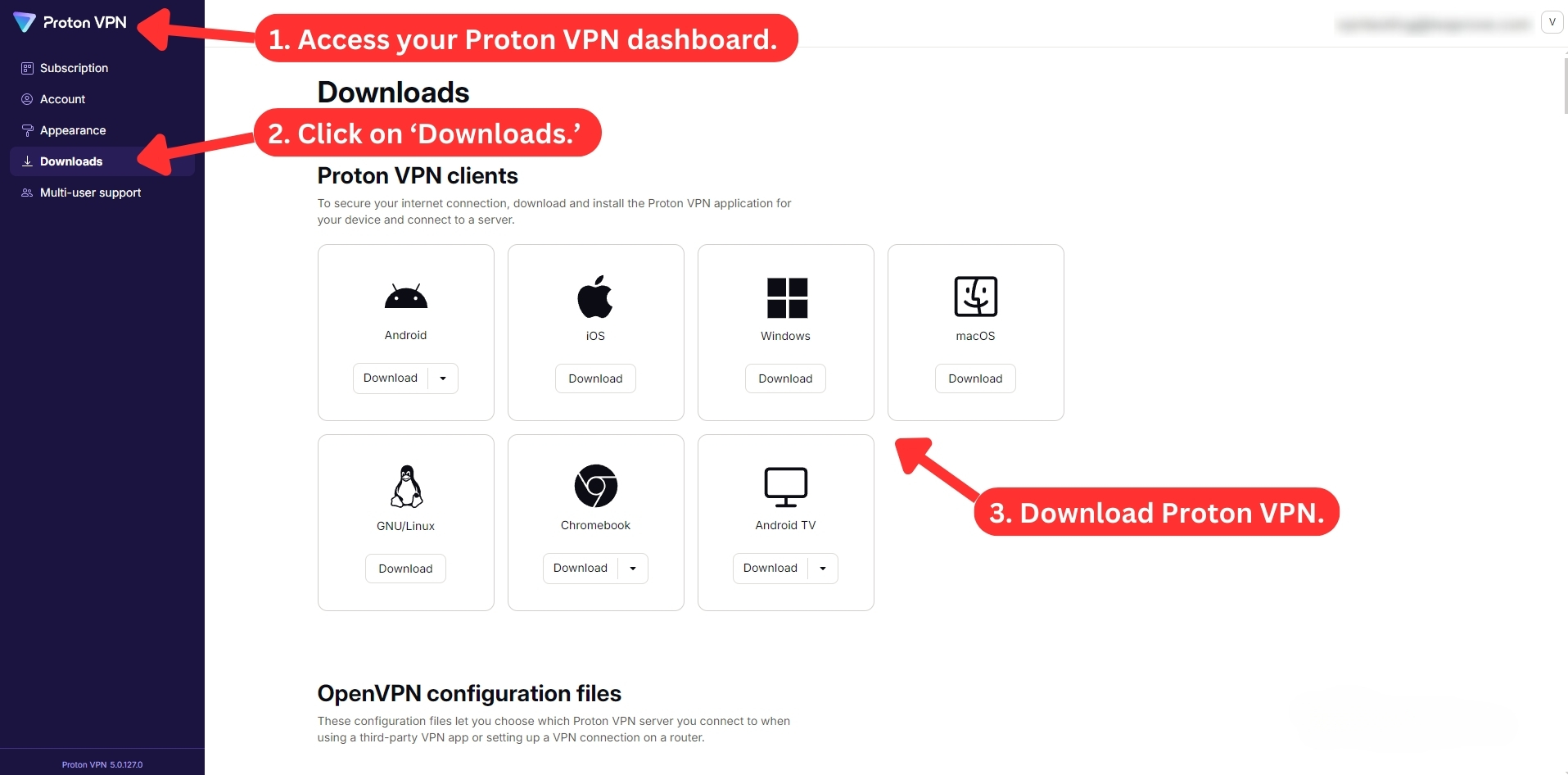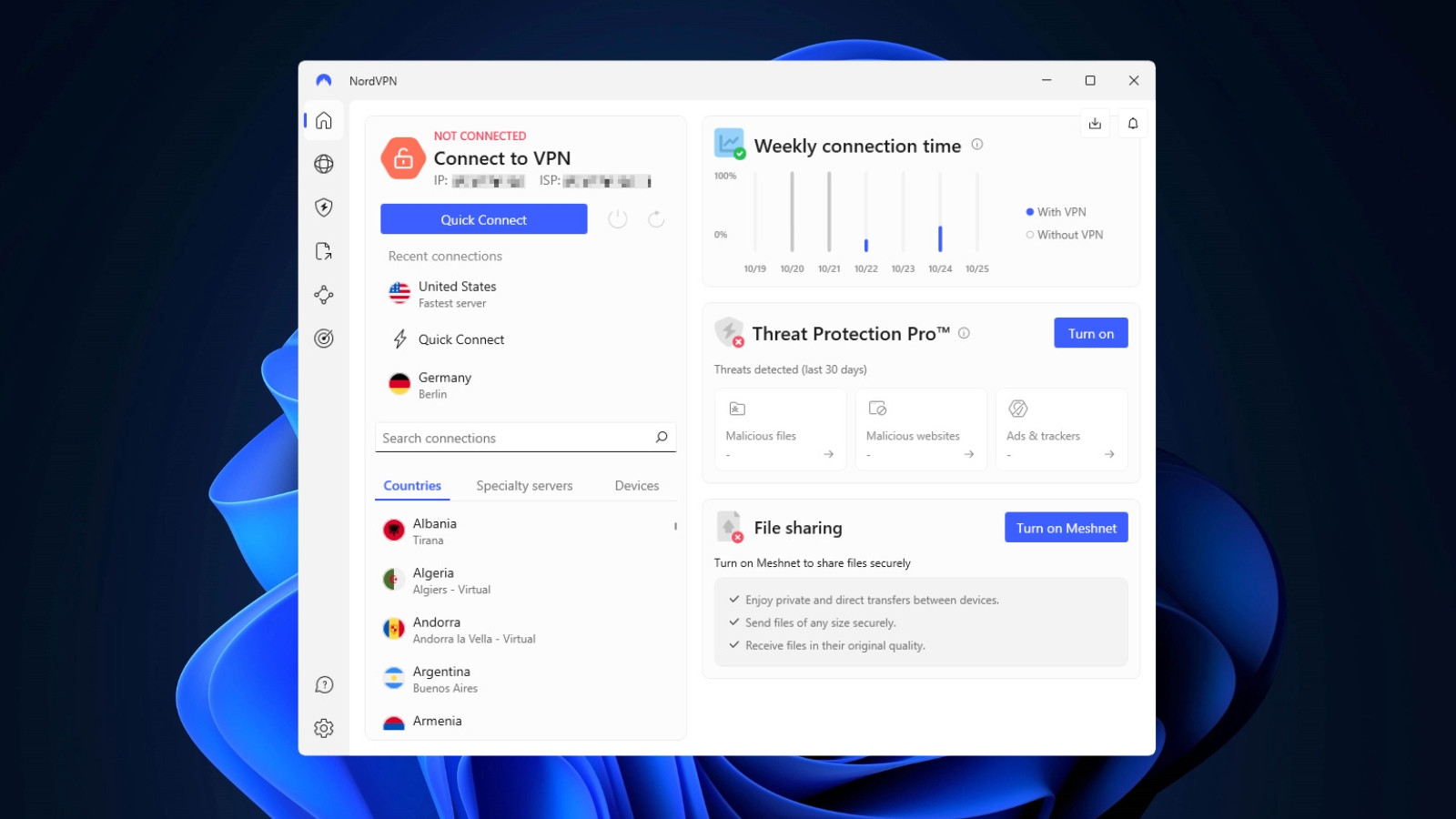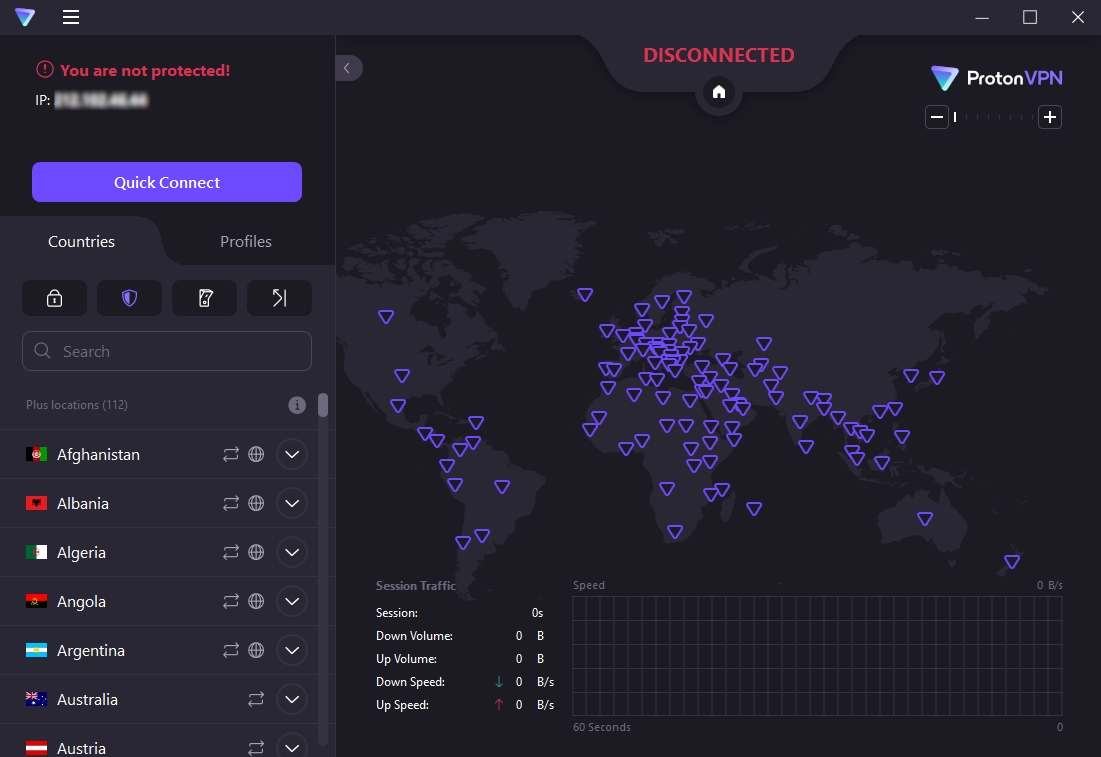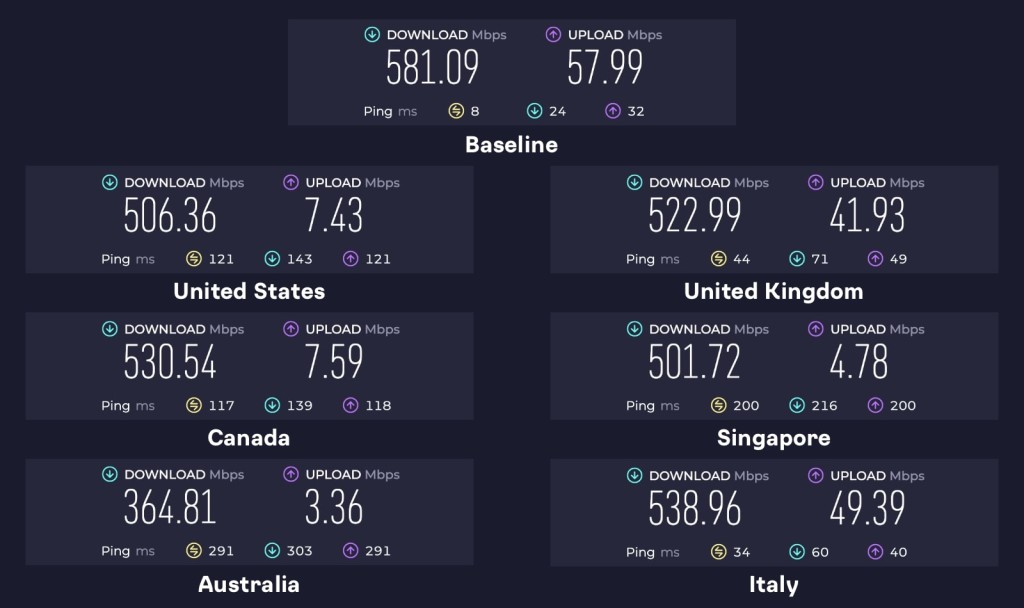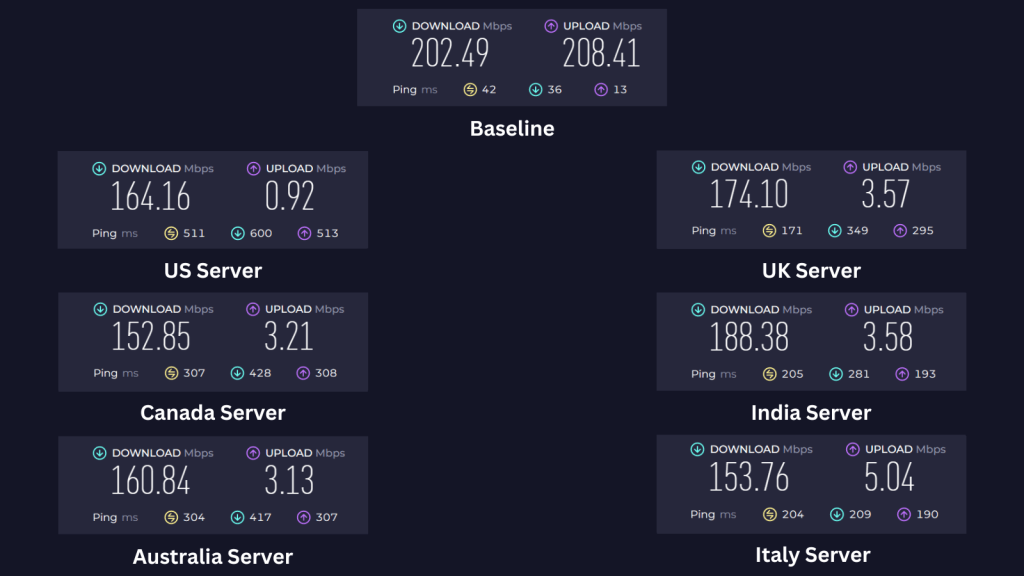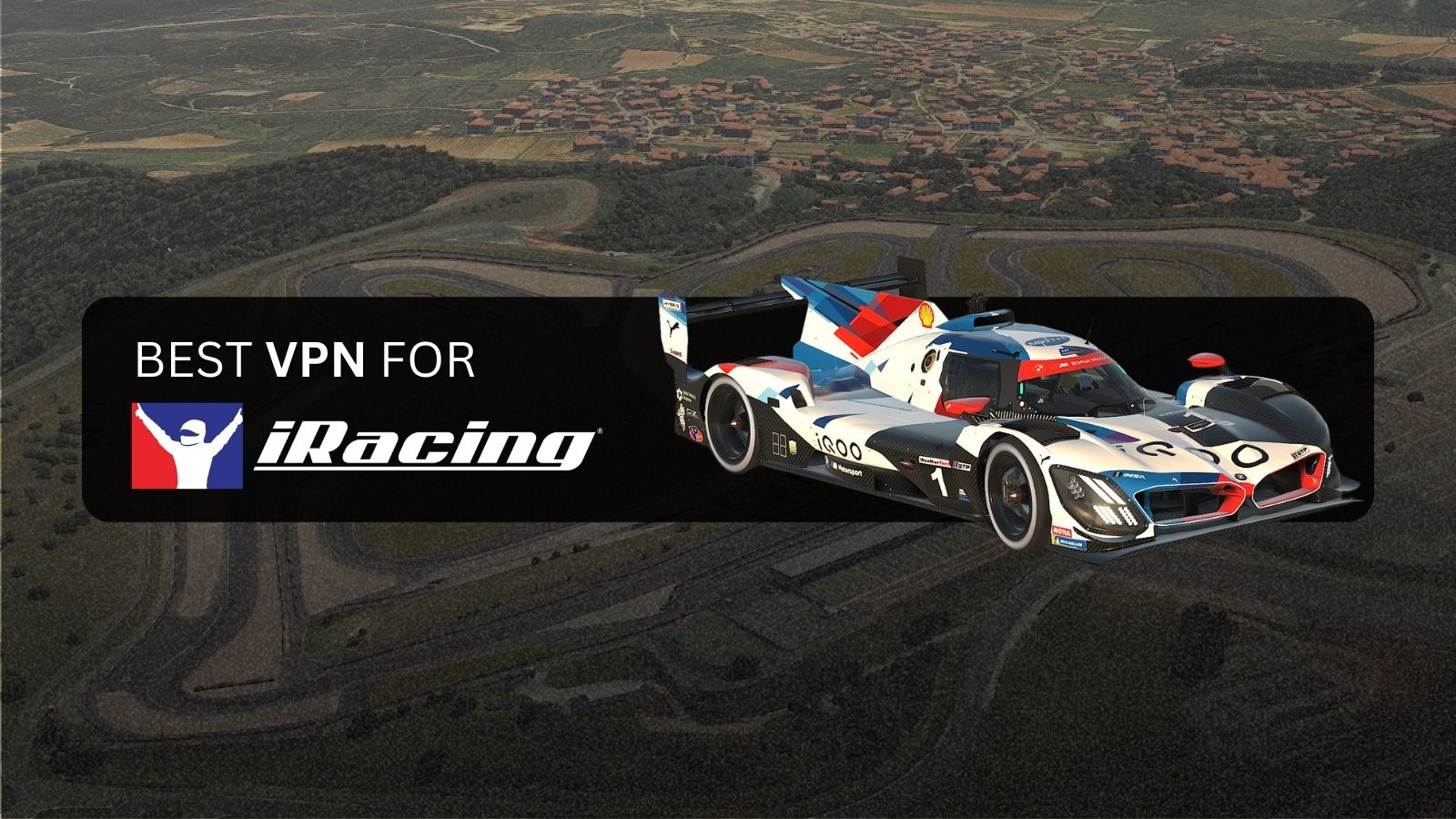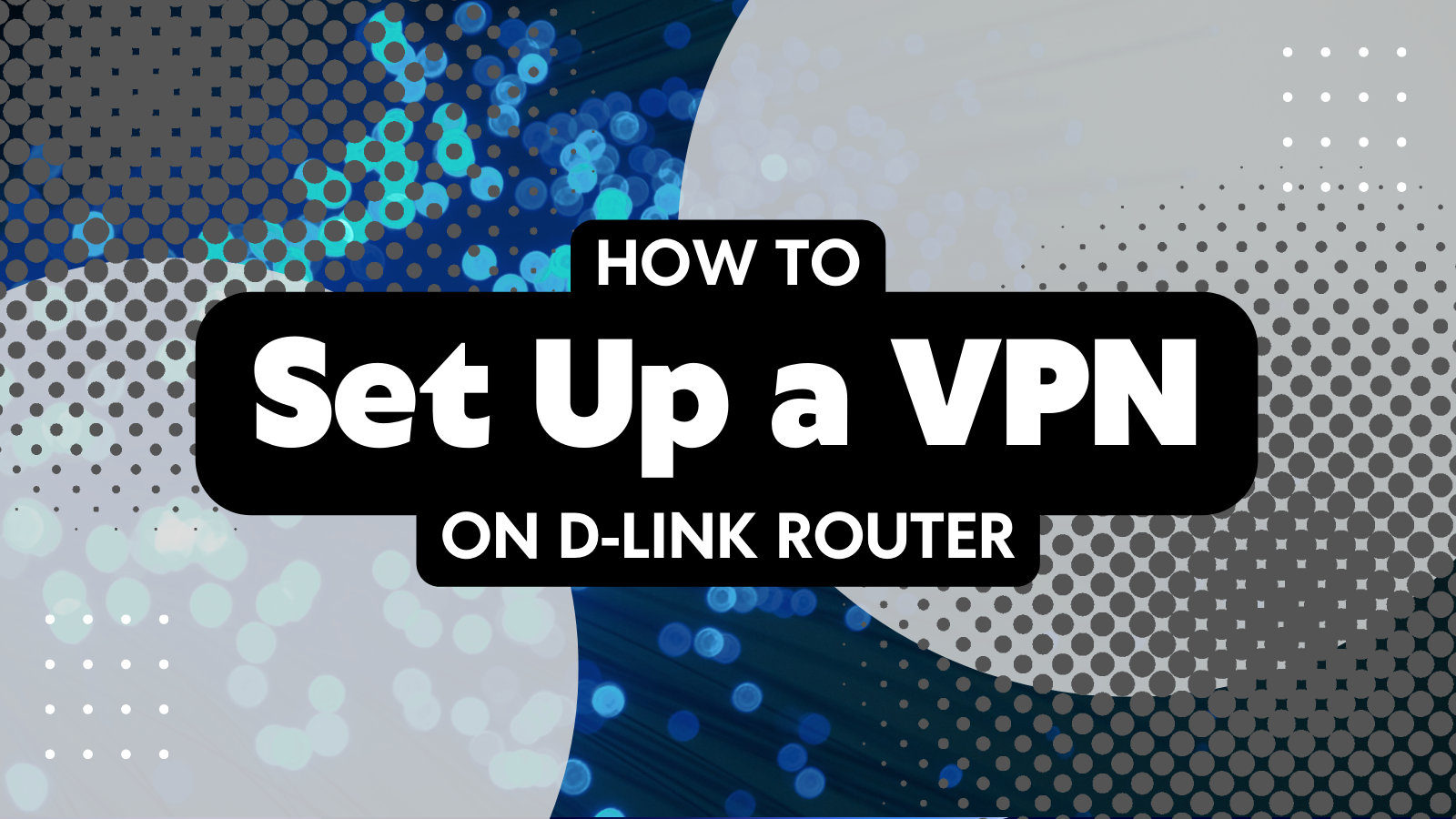When you purchase through links on our site, we may earn an affiliate commission. Here’s how it works.
NordVPN vs Proton VPN 2025
Our experts have reviewed 53 VPN providers, which were put through extensive rounds of testing. To learn more about that process, here’s how we review VPNs, where we explain our criteria and our policy of being fully transparent.
NordVPN needs no introduction, as it consistently tops our list of the best VPN services. Proton VPN, while placed further down the list, boasts a few features absent in NordVPN’s offerings. While these two VPNs share many similarities, this NordVPN vs Proton VPN comparison reveals that they differ in key areas.
Based in Panama, NordVPN has garnered widespread trust since its inception in 2012. Its global reach, blazing-fast speeds, strong privacy features (including a no-logs policy), and innovative functionalities make it a top choice for many.
Similarly, Swiss-based Proton VPN has been a strong protector of privacy since 2014, with secure encryption and a zero-logs policy. It also prioritizes privacy and security without sacrificing too much speed. Even better, it offers a free plan, making it a great choice if you're just starting your VPN journey.
But which service comes out ahead in a head-to-head comparison? Before we answer this question, let’s examine how their prominent features stack up against each other.
After a quick overview, we’ll show you a detailed comparison of NordVPN and Proton VPN across various criteria to help you choose the right service for your needs.
More specifically, we’ll talk about their background, server reach, platform availability, core features, ease of use, customer support, and pricing, to name a few.
Background, Jurisdiction & Reputation
Understanding a VPN's background is crucial to shaping user trust and the overall experience. Ideally, you should pick a VPN outside the 5/9/14-Eyes Alliance for superior protection. Let's explore these aspects for Proton VPN and NordVPN in this first round.
NordVPN - (Score 8.5/10)
NordVPN operates from Panama and benefits from being outside the 5/9/14 Eyes Alliance. The country doesn’t have any data retention laws and isn’t obligated to collect or share your data with authorities.
It’s owned by Nord Security, which also manages Surfshark and Atlas VPN (now defunct). However, each of these VPNs operates independently and follows its own independent path. The company also maintains a strict no-logs policy and undergoes regular independent audits to validate its commitments to privacy.
Nevertheless, NordVPN's reputation took a hit in 2018 due to a server breach. While no user data was compromised, the incident raised concerns about its security practices. NordVPN responded by implementing significant infrastructural upgrades, including the shift to RAM-only servers. This minimizes the risk of data retention as all information is wiped out upon reboot.
Although the breach remains a notable event in NordVPN's history, the company has made significant strides to bolster its security and uphold its no-logs policy. It has also increased the frequency of third-party security audits to maintain transparency with its users.
Proton VPN - (Score 10/10)
Proton VPN, owned by Proton AG, leverages Switzerland’s privacy laws and its founders’ expertise in developing ProtonMail’s encrypted email service. Swiss jurisdiction falls outside the 14 Eyes Alliance and is known for its staunch stance on digital privacy.
The service stands out for its transparency, which goes beyond mere claims. It has a strict no-logs policy and regularly subjects itself to independent audits to verify the claim. These audits, coupled with its open-source nature, have earned Proton VPN a high degree of trust and credibility.
Even without RAM-only servers, Proton VPN has maintained a clean security record with no major data leaks or privacy violations. This spotless track record, along with its uncompromised privacy commitment, makes it an ideal option for those prioritizing digital privacy.
Who’s the Winner? - Proton VPN!
While both VPNs offer solid privacy features and operate beyond the reach of the 5/9/14 Eyes Alliance, Proton VPN wins this round with its flawless security record and the Swiss legal privacy framework. So, get Proton VPN to ensure that your digital privacy and security are in expert hands.
Supported Platforms & Devices
Cross-platform compatibility is vital for securing connections across all your devices. Let’s explore how these VPNs compare in terms of device and platform support.
NordVPN - (Score 10/10)
NordVPN supports all major operating systems, including Windows, macOS, Linux, Chromebook, Android, and iOS, with user-friendly apps for easy setup. This extensive coverage is complemented by useful extensions for Chrome, Firefox, and Edge browsers.
For streaming needs, NordVPN offers native apps for Amazon Fire TV, Android TV, and Apple TV. Plus, they offer detailed guides on how to set up NordVPN on your router. This extends VPN protection to all your connected devices.
On top of that, NordVPN allows 10 device connections at once using a single subscription, making it a suitable choice for personal use or smaller households.
Proton VPN - (Score 10/10)
Proton VPN covers a wide range of platforms, including Windows, macOS, Linux, Android, iOS, including Chromebook, with a focus on user-friendly native apps for a secure connection. It extends its compatibility with browser extensions for Chrome and Firefox to enhance your privacy.
Just like NordVPN, Proton VPN supports streaming devices, including Fire TV, Android TV, Nvidia Shield, and more. Plus, you can set up Proton VPN on your router to protect your entire network.
Following suit with NordVPN, ProtonVPN also allows a generous 10 simultaneous device connections. It ensures that all your devices are protected under a single subscription.
Who’s the Winner? - It’s a Tie!
Excelling in cross-platform compatibility and ease of use, both VPNs make a strong case in this category, making it hard to declare a winner. That said, we recommend you get NordVPN if you prefer a one-click solution to protect your devices. You can also get Proton VPN if you aim for broader protection using various compatible routers.
Installation & Initial Configuration
Setting up a VPN should be straightforward. The best VPN services offer native apps that require minimal effort to set up, ensuring that even beginners can secure their online activities with ease.
NordVPN - (Score 10/10)
Getting started with NordVPN is incredibly easy. From signing up to downloading and configuring the app, each step is streamlined and user-friendly. All you need to do is visit their website, choose a plan, and download the app for your specific platform.
Whether you want to download an app for your computer or smartphone (or even configure a router), NordVPN provides clear guidance throughout the process. The setup files are compact and take less than a minute to download and install.
Once installed, the app guides you through its features so you can easily connect to a server of your choice. Check out our detailed instructions on how to set up NordVPN.
NordVPN also provides alternative applications for restrictive countries like China. You can initiate custom manual connections by following the guides and tutorials on NordVPN’s website.
Proton VPN - (Score 10/10)
Proton VPN’s setup process begins with a straightforward registration on their website. After signing up, you're directed to download the application tailored to your device's operating system.
Installing Proton VPN is as effortless as signing up. The process takes only a few minutes, and the instructions provided are clear and easy to follow. Upon launching the app, you’re greeted by the ProtonVPN dashboard, which offers insights into each privacy feature.
The app not only guides you through the configuration process but also educates you on the importance and functionality of each feature. This added layer of insight makes sure that you can get started without any hiccups.
Who’s the Winner? - It’s a Tie!
Both VPNs are tailored for ease of use and can be installed without the need for customer support. So, no matter which VPN you choose, you’re in for a hassle-free installation experience.
If you decide to get NordVPN, you’ll appreciate its unified dashboard, which facilitates quick setup and access to all its features. Similarly, if you get Proton VPN, you’ll have an active session in a couple of minutes and gain insights into its features as you set it up.
Prominent Features
Deciding on the best VPN service often hinges on its features. Let’s delve into the key features of Proton VPN and NordVPN to understand their differences.
NordVPN - (Score 10/10)
At its core, NordVPN offers essential privacy features like a kill switch and three secure VPN protocols, including OpenVPN, IKEv2, and NordLynx (based on WireGuard).
Split tunneling and the Double VPN features are also part of NordVPN’s privacy arsenal, alongside obfuscation, which helps you bypass network restrictions. It also comes with a 'Threat Protection Pro' feature that adds another layer of security by blocking malicious sites, ads, and trackers.
Also, you can avail of a dedicated IP ($8.99 per month on the monthly plan) if you need a static IP address. To guarantee consistent performance and speed, NordVPN provides unlimited server switches with unrestricted bandwidth and data as well.
You also get unique features like SmartDNS and Meshnet, which Proton VPN lacks. The former helps you unblock content on non-VPN devices, while the latter lets you create a private network with your devices or those of your friends.
Proton VPN - (Score 9/10)
Proton VPN's feature set is equally impressive, if not as extensive as NordVPN. It includes a reliable kill switch and prioritizes strong VPN encryption, supported by protocols like WireGuard, OpenVPN, IKEv2, and Stealth. The Stealth protocol obfuscates your VPN traffic and is particularly useful in highly censored regions.
To equal NordVPN’s Threat Protection, Proton VPN offers 'NetShield' to block malicious websites and ads. It also offers a split tunneling feature and 'Secure Core' servers for an added layer of protection by routing traffic through multiple servers.
Proton VPN also integrates with the Tor network, allowing easy access to Onion sites. It promises unlimited server switches with no bandwidth or data caps, so your Internet experience isn’t throttled in any way.
Who’s the Winner? - NordVPN!
Both VPNs closely match their feature sets, yet NordVPN slightly outperforms ProtonVPN with its unique offerings like Meshnet and SmartDNS. These features, combined with robust security, make it a more versatile choice for diverse needs. Therefore, get NordVPN to access its unique functionalities and enjoy a flexible VPN experience.
Server Count & Infrastructure
Opting for a service with a broad server network is crucial for smooth performance and flexibility. Let’s see how NordVPN and ProtonVPN fare in this category.
NordVPN - (Score 10/10)
NordVPN offers over 7,000 servers in 118 countries, making it a top contender for the best VPN with most servers. This vast network ensures reliable connectivity and speed, regardless of the location you connect to.
A major highlight of NordVPN is that its servers are optimized for P2P activities, facilitating efficient torrenting. Although it doesn’t have dedicated servers for streaming and gaming, the standard servers support these activities without issues. The service also provides Double VPN servers, Onion over VPN, and obfuscated servers to enhance your security while efficiently bypassing VPN blocks.
Aside from NordVPN's physical servers, it also employs 50 virtual server locations. All these servers use a RAM-only architecture, which ensures that your data is never stored on hard drives, thus reducing breach risks.
Proton VPN - (Score 9.5/10)
Proton VPN’s network, though smaller than NordVPN’s, is still substantial, with more than 8,700 servers in 117 countries. All these servers are owned and maintained by Proton AG and are free from third-party access.
The service offers dedicated servers for streaming and torrenting. These servers are marked with symbols (like double arrows for P2P support), making it easier to locate and connect to your desired server. Just like NordVPN, ProtonVPN lacks specific gaming-optimized servers but keeps your ping and latency in check on regular servers for efficient gaming.
Additionally, Proton VPN includes 'Secure Core' servers for extra privacy and 'Tor over VPN' for secure torrenting. For obfuscation, the Stealth protocol masks your VPN activity to resemble normal Web traffic, which comes in handy in censored regions.
You can also access 48 virtual server locations using the 'Smart Routing' feature. ProtonVPN uses these servers in countries with limited accessibility or restrictions.
Who’s the Winner? - NordVPN!
NordVPN takes the lead in this round with its larger server count and additional specialty servers. Because of these features, NordVPN provides a more diverse and flexible user experience compared to what Proton VPN offers. So, if you seek extensive global coverage and tailored server options, then we highly recommend you get NordVPN.
UI/UX Design & Ease of Use
A VPN’s interface and usability are deciding factors for a smooth online experience. NordVPN and Proton VPN have both invested heavily in building user-friendly platforms, but let’s see who comes out on top in a head-to-head matchup.
NordVPN - (Score 10/10)
NordVPN’s interface impressively combines aesthetic appeal with practical functionality. The map-based interface makes the desktop apps visually appealing and facilitates server selection. It carries a clean and minimalistic layout that even new users can navigate effortlessly.
You can scroll through the server location list on the left to select your desired server or simply tap the "Quick Connect" button to automatically connect to the best location. Below this, you’ll also find your recent connections and access to specialty servers.
On smartphone apps, NordVPN maintains the same consistency in design. The apps are intuitive and responsive, adapting well to mobile screens. The settings menu is well organized and provides easy customization options through features like “Threat Protection” and multiple protocol options.
The interface on both desktop and mobile platforms isn’t only visually appealing but also practical. It ensures that you can easily find and adjust settings based on your specific preferences.
Proton VPN - (Score 9/10)
Proton VPN focuses on simplicity and ease of use with its modern interface. Much like NordVPN, Proton VPN’s desktop apps showcase a straightforward layout.
It displays a "Quick Connect" button, a list of countries, and a map view for server selection. The apps are easy to navigate, making it effortless to find necessary features like 'Secure Core' and VPN connection profiles.
The mobile apps mirror the desktop versions in terms of accessibility and efficiency. The main screen allows quick server connections, while the advanced settings can be accessed with just a few taps.
Proton VPN's functional interface makes it an excellent choice if you prioritize ease of use. Both desktop and mobile applications provide a hassle-free experience without sacrificing advanced features for expert users.
Who’s the Winner? - NordVPN!
Both VPNs offer user-friendly experiences, but NordVPN’s intuitive interface gives it a slight edge over Proton VPN. It provides an interactive interface that’s both visually appealing and practical.
While both VPNs are good options, you should get NordVPN if user-friendliness and a touch of visual appeal are important to you.
Media Streaming, Torrenting, and Gaming Support
Besides data protection, VPNs are also important for entertainment. They play a vital role in unlocking geo-restricted content, enhancing gaming sessions, and supporting torrents. Let’s see how NordVPN and Proton VPN compare in these aspects.
NordVPN - (Score 10/10)
NordVPN unblocks Netflix and almost all popular streaming platforms. Although it doesn’t label its streaming-optimized servers, you won’t have an issue finding the right server for sites like Prime Video, Max, Hulu, and BBC iPlayer.
For torrenting, NordVPN offers optimized P2P servers that ensure fast and secure torrent downloads. The Onion over VPN and SOCKS5 proxy features also enhance your privacy, making NordVPN a good option for torrenting enthusiasts.
We've found that NordVPN works great for Warzone as well. It kept ping and latency low throughout our gaming sessions. It also effectively bypassed geo-blocks, giving us access to region-specific titles and gaming lobbies without issues.
Proton VPN - (Score 9.5/10)
Proton VPN matches up well in the streaming arena, boasting servers specifically optimized for this purpose. These servers, marked with the 'media player' icon, consistently provide access to all popular streaming platforms like Netflix, Prime Video, Hulu, Max, Disney+, and BBC iPlayer.
Similarly, torrenting is a strong suit for Proton VPN. It offers P2P-optimized servers and ensures fast and secure downloads with features like Tor over VPN and port forwarding. Additionally, it includes a kill switch that automatically disconnects your Internet access if you lose your VPN connection.
For online gaming, Proton VPN performs well. It maintains a stable connection with low ping and latency. Its capabilities to bypass regional restrictions and unblock a variety of titles and lobbies globally make it a viable option for gaming.
Who’s the Winner? - NordVPN!
NordVPN and Proton VPN exhibit impressive strengths in terms of streaming, gaming, and torrenting. However, NordVPN outshines Proton VPN with its extensive server network and high-speed connections.
This means if you get NordVPN, you’ll have a versatile, fast, and dependable VPN that won’t only unblock potentially all streaming platforms but also cater to your gaming and torrenting needs.
Security & Privacy
Safeguarding your digital identity is a top priority when looking for a VPN. NordVPN and Proton VPN both stand out in their commitment to robust protection, but let's dive deeper to see how they compare in this crucial segment.
NordVPN - (Score 9.5/10)
NordVPN is widely recognized for its exceptional security and privacy features. It uses secure VPN protocols, including OpenVPN, IKEv2/IPsec, and the proprietary NordLynx, which is based on the WireGuard technology.
Recently, NordVPN introduced NordWhisper, a new protocol designed to mimic regular Web traffic and bypass strict filters. This addition strengthens NordVPN’s lineup, giving you even more ways to stay connected in heavily restricted networks.
NordVPN's zero-logs policy also shows how much they care about your privacy. Regular audits verify that no user data is stored. Additionally, it includes a kill switch to prevent any accidental exposure of your actual IP address or activities.
NordVPN also provides robust protection against IP and DNS leaks. We conducted several leak tests, but our personal information, including our IP addresses and Internet activity, remained hidden at all times. This comprehensive protection makes NordVPN a good choice if you prioritize online safety.
Proton VPN - (Score 10/10)
Proton VPN also excels at protecting your data and online identity. It supports all popular VPN protocols, such as OpenVPN, IKEv2/IPsec, and WireGuard. Notably, Proton VPN uses the Stealth protocol, which is an innovative feature designed to bypass stringent network blocks and censorship.
Proton VPN’s privacy aspect is reinforced by its strict no-logs policy, which has been independently audited and verified more than once. Adding to this, you get features like a kill switch and 'NetShield' to enjoy a secure Internet experience.
Moreover, Proton VPN’s IP and DNS leak protection features further solidify its position as a leading VPN for privacy and security. This feature ensures that your real IP/DNS information and the websites you visit aren’t exposed, even if your connection drops unexpectedly.
Who’s the Winner? - Proton VPN!
Although both VPNs have a lot in common in this round, Proton VPN has a narrow advantage due to its robust leak protection and stronger security framework. If you get Proton VPN, you’ll have access to the innovative Stealth protocol, which can reliably bypass network restrictions and censorship.
Speed & Performance
How a VPN manages to maintain fast speeds while ensuring robust security is a crucial factor in its overall appeal. Let’s see how the two VPNs perform in this Proton VPN vs NordVPN segment.
NordVPN - (Score 9/10)
NordVPN merges rigorous security with high-speed performance for an optimal VPN experience. In our tests, we had a minimal speed reduction of just 15% on average, which is impressive for a VPN.
The efficiency is particularly notable in nearby regions like the US and the UK, where speed reduction was only 13% and 10%, respectively. NordVPN showed similar consistency across various regions, like Singapore (14%) and Canada (9%), including Italy, where the reduction was merely 7%.
However, we experienced a more pronounced reduction in Australia, at 37%. Despite this, NordVPN manages to provide excellent speeds on both nearby and remote servers. These numbers place it among the fastest VPNs, offering reliable and swift connections with minimal lag.
Proton VPN - (Score 9/10)
Proton VPN, while slightly slower than NordVPN, still delivers decent speed and performance. Our tests showed an average speed reduction of 18.3% compared to NordVPN’s 15%. We observed a speed reduction of 19% in the United States and 14% in the United Kingdom, which is closer to our location.
Speed drops in Australia, Italy, and Canada were a tad higher at 21%, 24%, and 25%, respectively. However, this is countered by an impressively low 7% reduction in India, the farthest server from our location.
Despite these numbers, Proton VPN maintains a competitive edge with its advanced security features. The slight reduction and inconsistency in server speed is a small trade-off for the level of privacy Proton VPN offers.
Who’s the Winner? - It’s a Tie!
NordVPN and Proton VPN put up a commendable performance, making it a close call to choose a winner in this section. On average, NordVPN resulted in a slowdown of only 15% compared to Proton VPN's 18.3% decrease in speed.
So, if you get NordVPN, you can expect lightning-fast speeds across all distant and remote regions. On the other hand, you’ll get a balance of speed and enhanced security if you get Proton VPN.
Customer Support
Effective support can make all the difference when using a VPN. Let’s delve into how NordVPN and Proton VPN perform in this crucial aspect.
NordVPN - (Score 10/10)
NordVPN provides a smooth experience with numerous support options. You can get instant help at any time of the day using the 24/7 live chat option. The feature is especially useful for quick troubleshooting, as you get real-time assistance from helpful representatives.
Additionally, you get comprehensive email support, which is ideal for more detailed inquiries. The response time is generally quick, so you won’t have to keep waiting for long.
Besides direct support channels, NordVPN also offers a wealth of self-help resources, including installation guides, tutorials, and an extensive FAQ section. It also keeps a regularly updated blog that not only covers the VPN service but also broader topics related to online security and privacy.
Proton VPN - (Score 7/10)
Most subscribers primarily rely on Proton VPN's knowledge base and email support because its 24/7 live chat feature is only available for 'Plus' users. This absence is a bit of a drawback, especially if you're on a free plan seeking immediate assistance. Nevertheless, their support center has thorough guides, and email responses are usually delivered within 24 hours.
The service also features helpful installation guides and an FAQ section. These resources are detailed and clear, serving as a great first stop for those requiring initial self-help options.
Proton VPN's blog is also an integral part of their customer support. The blog offers insights and updates about the service, as well as general tips on privacy and security in the digital world.
Who’s the Winner? - NordVPN!
NordVPN clearly takes the lead with its comprehensive support system, including the crucial 24/7 live chat feature. Their approach offers more immediate support, making it a favorable option if you're seeking quick help. In other words, get NordVPN if you prefer real-time 24/7 assistance via live chat.
Pricing
Cost is a key consideration when choosing a VPN. Let’s explore the payment structures for NordVPN and Proton VPN and see which service offers better value for money.
NordVPN - (Score 9/10)
NordVPN's pricing is tiered across 4 plans: Basic, Plus, Complete, and Prime. The Basic plan, starting at $3.39/month for two years, offers essential VPN features with standard 'Threat Protection' and 10 simultaneous connections. For shorter commitments, monthly and annual plans are available at $12.99 and $4.99/month, respectively.
The 'Plus' plan adds 'Threat Protection Pro,' which offers anti-malware, anti-tracking, ad-blocking, and enhanced browsing protection. This plan also provides a password manager and a data breach scanner starting at $4.39/month, while the 'Complete' plan adds 1 TB of encrypted storage.
Meanwhile, the Ultimate plan includes everything from the other tiers, plus additional cyber protection benefits, starting at $8.39/month for a 2-year subscription. For more info, check out our guide on NordVPN pricing details.
While NordVPN doesn't have a free plan, it offers two ways to try the service risk-free. First, you can take advantage of its 30-day money-back guarantee on all plans. If you're not satisfied, you can cancel NordVPN and get a full refund - no questions asked.
Second, you can avail yourself of NordVPN's risk-free trial for 7 days on an Android device. However, you must enter your payment details upfront to start the trial. To avoid being charged, be sure to cancel the subscription before the 7 days are up.
And, by the way, if you're looking to save on your subscription, NordVPN offers coupon codes as well.
Proton VPN - (Score 9/10)
Proton VPN includes a free plan and three paid options: monthly, 1-year, and 2-year subscriptions. The free plan grants access to 5 countries but lacks advanced features.
Paid plans start at $9.99/month, with the annual ($3.99/month) and 2-year ($3.59/month) plans offering 60% and 64% savings, respectively. The Proton Unlimited plan at $9.99/month on the 1-year subscription offers a more comprehensive solution by including ProtonMail, ProtonPass, ProtonDrive, and more in its bundle.
ProtonVPN doesn’t have a free trial for the paid plans, but you can try them out risk-free using the 30-day money-back guarantee. However, keep in mind that this guarantee doesn't apply to subscriptions purchased with cash or bank transfers.
Who’s the Winner? - It’s a Tie!
As you can see, it’s hard to declare a definitive winner between NordVPN and Proton VPN. Both bring unique strengths to the table, tailored to varied requirements and budgets.
Whether you choose to get NordVPN for its feature-rich, tiered plans or get Proton VPN for its flexible pricing and free plan, you're investing in quality and value.
NordVPN vs. Proton VPN - Which One Is Better?
NordVPN secures a higher spot in our comprehensive Proton VPN vs NordVPN comparison. It’s quick to introduce advanced, high-end features that make a real difference. Its performance is also consistently fast, even during high-demand activities like streaming, torrenting, and gaming. Plus, the 24/7 live customer support is always on point.
Proton VPN, on the other hand, excels from being based in a country with a neutral diplomatic stance, and its focus on protecting user privacy makes its jurisdiction reliable. Another advantage Proton VPN has over NordVPN is the obfuscation feature on its free plan. It's a nice bonus, especially since NordVPN doesn’t offer a free version.
The decisive factors in this comparison also lie in the details. To see how these two VPNs measure up, let’s take a look at their individual scores based on the reviews we've published on our website.
Although Proton VPN impresses with a free plan and robust privacy features, NordVPN’s overall versatility and balance across various parameters like server network, advanced features, impeccable speed, and real-time support make it the more rounded option for most users.
If you’re after a VPN that offers both functionality and security, sign up for NordVPN. We strongly recommend it!
You’ve made it to the end of our NordVPN vs Proton VPN comparison. If you've got any queries or concerns, feel free to ask us in the comments below. Thanks for reading!

